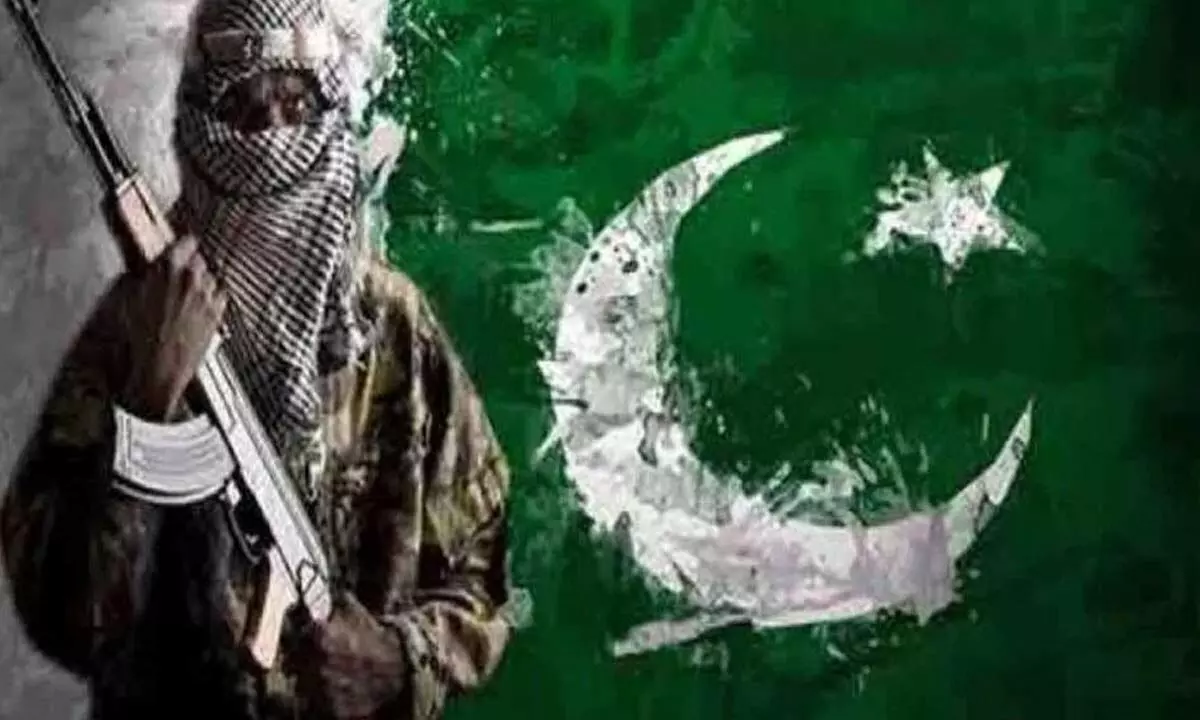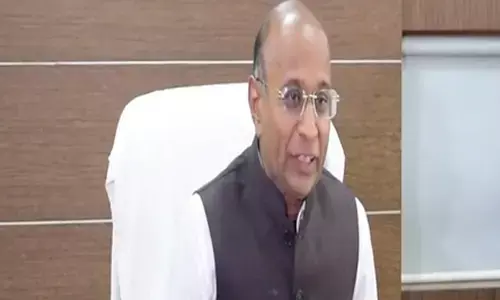EU goes soft on Pak as terror hub

EU goes soft on Pak as terror hub
India must increase security and terror watch following the European Union’s (EU) decision to remove Pakistan from the list of ‘High-Risk Third Countries’ for adequately tackling anti-money laundering (AML) and counter terrorism financing.
New Delhi: India must increase security and terror watch following the European Union's (EU) decision to remove Pakistan from the list of 'High-Risk Third Countries' for adequately tackling anti-money laundering (AML) and counter terrorism financing. This would mean that the additional regulatory watch and restrictions applicable to Pakistan until now, would no longer be in place.
Experts said that this could lead to a rise in money laundering and terror financing activities in the region especially since general elections in Pakistan and Bangladesh are approaching. The rising uncertainty in these two countries is also likely to give rise to the hydra-headed problem of radicalism, directly impacting India.
Countries, which reflect higher threat to the financial system owing to strategic deficiencies in their internal anti money laundering and counter financing of terrorism (CFT) regimes are part of this list.
Last year, in October, Pakistan exited the Financial Action Task Force's (FATF) global money laundering watchlist. Subsequently, the UK removed Pakistan from the list of "high risk third countries" in November 2022.
It is noteworthy that in around the same time-October 2022, global experts at the Security Council's Counter Terrorism Meeting in New Delhi reiterated that cash and hawala remain the key source for terror financing. Governance and counter terrorism regime in Taliban-led Afghanistan also led to concern.
The Diplomat said the Afghanistan-Pakistan border has been the main theatre of vulnerability.
The EU's move, therefore, has come as a surprise to many especially since in February this year, the UN Sanctions Monitoring Committee Report stated the bordering "Afghanistan remains the primary source of terrorist threat for Central and South Asia." Not just that. The 10th edition of the Global Terrorism Index (GTI) - a report produced by Sydney based Institute for Economics & Peace (IEP) revealed that Pakistan experienced a sharp increase in terror activities with the toll more than doubling from 2021.
"Given the nature of developments in recent months in Afghanistan and Pakistan with increase in terror attacks and clashes between the terror groups, it is far more critical that international oversight is increased and legal framework is strengthened for monitoring flows of funds in and around Afghanistan and Pakistan," Navita Srikant, a commentator on international affairs told India Narrative. She added that since cash and hawala remain the two preferred routes to terror financing, such means can easily be exploited along the border states of landlocked Afghanistan.
Last month, a UN report also noted that Afghanistan continues to be the primary source of terrorist threat for Central and South Asia. Terror groups such as ISIL-K, Al-Qaeda and Tehrik-e Taliban Pakistan enjoy greater freedom of movement owing to the absence of an effective Taliban security strategy, it added.
The EU Commission should have taken cognisance of the UN Security Council's report, Srikant said. "It should have asked the FATF for reassessment of the emanating terror financing risk from the region and recommended a 'high risk third country' rating for all neighbouring countries of Afghanistan including Pakistan," Srikant added. According to Islamabad based Pak Institute for Peace Studies, a total of 419 people were killed in Pakistan in 262 terror attacks, news agency reported.
The Islamic Republic of Pakistan has long been accused of harbouring terrorist organisations. In 2008, the Brookings Institute named Pakistan as the "world's most active sponsor of terrorist groups." From 2012 to 2015, Pakistan was placed on the Financial Action Task Force's "Terrorism Financing Watch List". In 2017, the Institute for Economics and Peace (IEP) placed Pakistan fifth out of 163 countries on their "Global Terrorism Index"... The New York Times has reported that Pakistan will be readmitted to the "Terrorism Financing Watch List" as of June 2018. In response to Pakistan's lack of action against Lashkar-e-Taiba and the Milli Muslim League, the US froze $1.3bn of Pakistan's security aid in January. Shortly thereafter, Britain co-signed a letter with the US, nominating Pakistan for the "Terrorist Financing Watch List". These efforts were supported by both France and Germany. Yet, the European Commission has remained silent, or worse, has been complicit in Pakistan's abuses, for example, by omitting all reference to state-sponsored terrorism in Pakistan in their GSP+ monitoring procedures. Refraining from action in regard to Pakistan's state-sponsorship of terrorism goes against Europe's own counter-terrorism policies and contributes to global insecurity, writes thus Heinz K. Becker in the article, 'Why does the EU continue to gloss over Pakistan's state-sponsored terrorism?' at https://www.theparliamentmagazine.eu/











